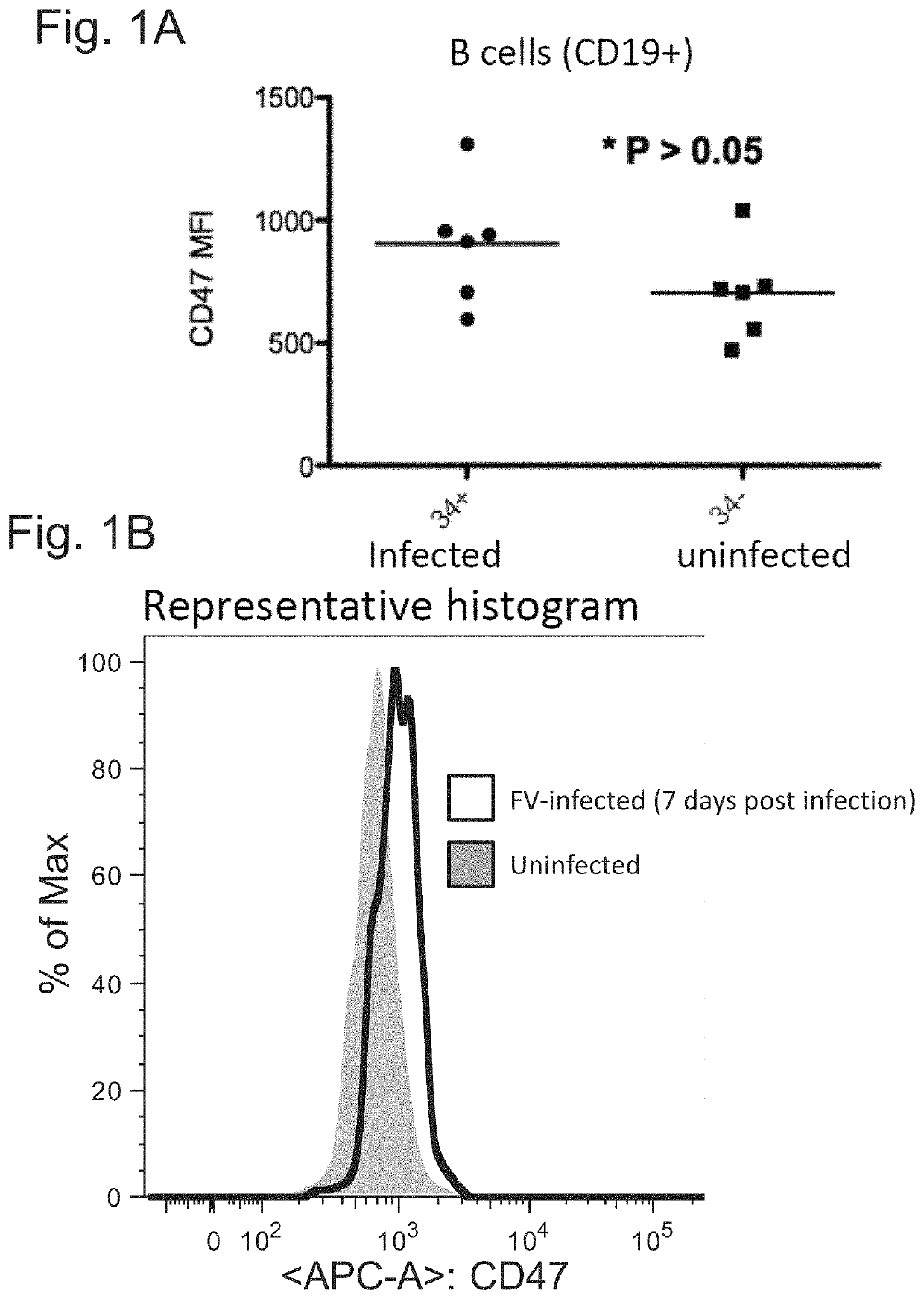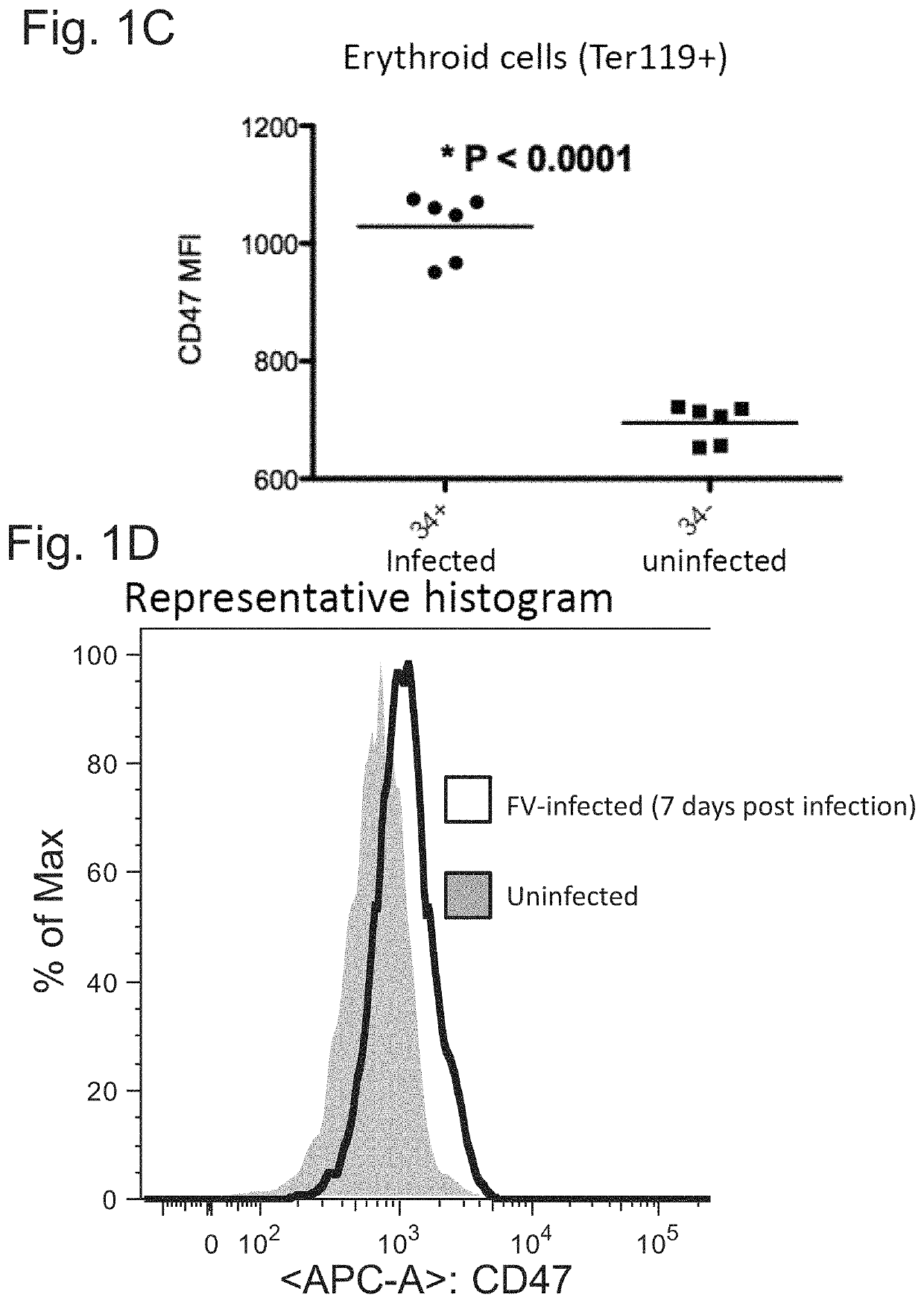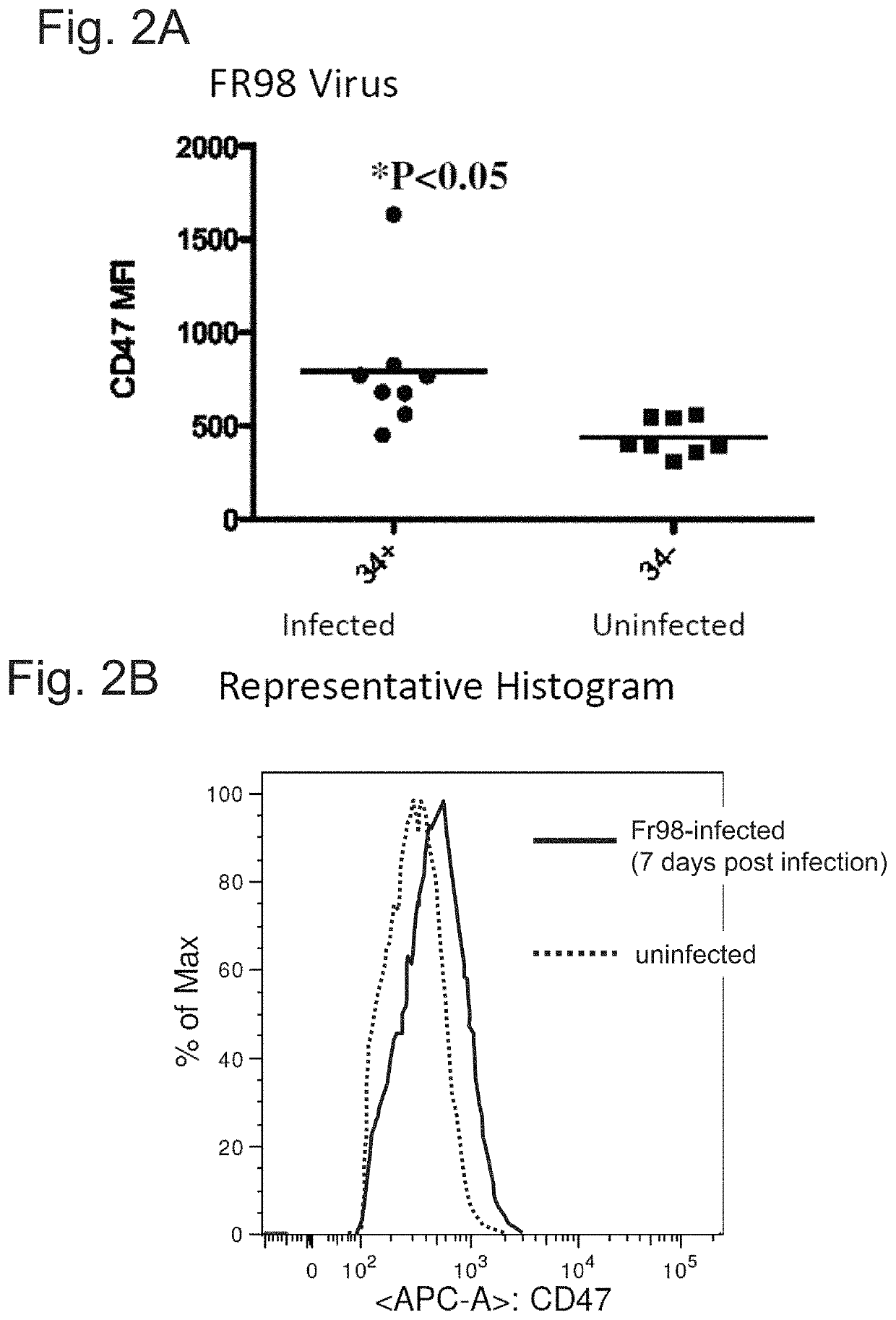CD47 targeted therapies for the treatment of infectious disease
a technology of infectious diseases and targeted therapies, applied in the field of cd47 targeted therapies for the treatment of infectious diseases, can solve problems such as infection persistan
- Summary
- Abstract
- Description
- Claims
- Application Information
AI Technical Summary
Problems solved by technology
Method used
Image
Examples
examples
[0076]The data presented here demonstrate that increased expression of CD47 is a common mechanism by which infectious agents (e.g., viruses, fungi, bacteria, protozoa, etc.) circumvent the immune response of the host organism. When an infected cell is induced by an infectious agent to express increased levels of CD47, the infected cell presents a “don't eat me” signal (CD47) to the host organism's macrophages and phagocytes. Thus, the infectious agent prevents the phagocytosis and removal of the infected cell. To counteract this process and allow the phagocytosis and removal of infected cells in a subject, an anti-CD47 agent can be administered to reduce the binding of CD47 on the infected cell, to SIRPα on a phagocytic host cell and thus allowing the eat me signals to prevail.
[0077]The following experiments were performed, revealing that cells infected with various infectious agents express higher levels of CD47 than uninfected cells.
[0078]Adult mice were experimentally infected wi...
PUM
| Property | Measurement | Unit |
|---|---|---|
| dissociation constant | aaaaa | aaaaa |
| dissociation constant | aaaaa | aaaaa |
| dissociation constant | aaaaa | aaaaa |
Abstract
Description
Claims
Application Information
 Login to View More
Login to View More - R&D
- Intellectual Property
- Life Sciences
- Materials
- Tech Scout
- Unparalleled Data Quality
- Higher Quality Content
- 60% Fewer Hallucinations
Browse by: Latest US Patents, China's latest patents, Technical Efficacy Thesaurus, Application Domain, Technology Topic, Popular Technical Reports.
© 2025 PatSnap. All rights reserved.Legal|Privacy policy|Modern Slavery Act Transparency Statement|Sitemap|About US| Contact US: help@patsnap.com



